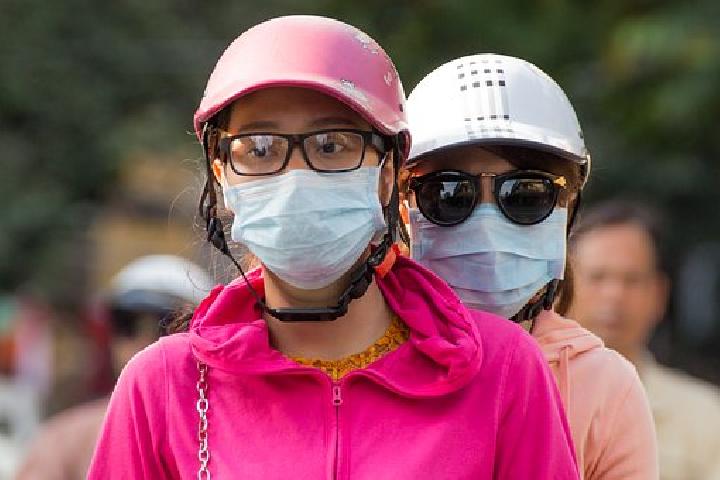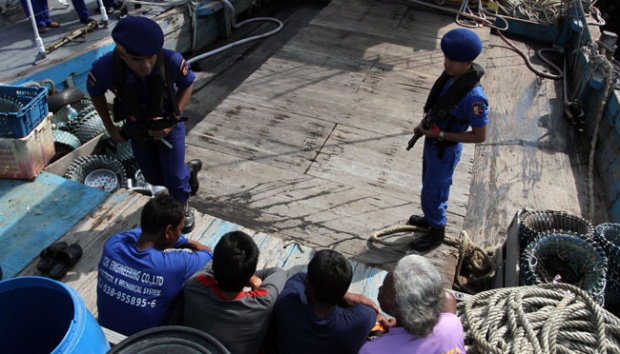Asian Nations Still Hedging in Global Health Diplomacy Race
Translator
Editor
Laila Afifa
Jumat, 11 November 2022 10:00 WIB

By: Jati Satrio, a lecturer at Universitas Pembangunan Nasional Veteran in Jakarta, Indonesia
Although health diplomacy is instrumental in gaining influence and traction, its international rivalry is not necessarily healthy.
China and Japan are seen as two of Asia’s biggest political heavyweights competing for influence in Southeast Asia. The COVID-19 pandemic has heightened the rivalry between these two countries. Both view health diplomacy as an essential tool to serve and strengthen their political interests in the region.
A recent survey report revealed Japan remains the most trusted major power among Southeast Asians. A total of 1,677 respondents from ten Southeast Asian countries took part in the survey. More than half (54.2 percent) of the respondents expressed confidence in Japan’s trustworthiness to provide for the global public. However, 58.1 percent of the respondents expressed distrust towards China and nearly 50 percent feared it could use economic and military power to strengthen its interest and sovereignty.
Great power rivalry in Southeast Asia has often resulted in hedging behavior, a strategic move where smaller Southeast Asian countries balance relations with both sides in a diplomatic tussle to ensure whoever comes out on top remains a possible ally. The pandemic has ignited this behavior.
Southeast Asian countries have received vaccines from both China and the West. Some Southeast Asian countries even encourage China and Western countries to cooperate in developing locally produced vaccines. For example, Bio Farma, an Indonesian state-owned enterprise, conducted clinical trials and locally manufactured CoronaVac, a Chinese-made vaccine. Meanwhile, Bio Farma is also developing its own vaccine under the name of IndoVac, which was developed in collaboration with Baylor College of Medicine, in the United States.
China has actively exercised health diplomacy during the COVID-19 pandemic. China sent vaccine supplies to various countries, especially Southeast Asian countries. China also deployed health equipment, such as face masks, test kits, and ventilators to fight the pandemic. Moreover, Chinese state-owned media is running a PR campaign to try to improve the nation’s image. The messages portray China as a pioneer of health diplomacy measures while erasing the negative image of its early mismanagement of the pandemic. China exploited the opportunity created by the Western countries’ behavior in stockpiling the vaccine supply during the early period of the pandemic.
Japan is utilizing health diplomacy in Southeast Asia differently. Japan is not only donating vaccines but improving the vaccine storage system through its Last One Mile Support program, which ensures the safe delivery of vaccines to vaccination sites.
Japan is also teaming up with other Quad members (the United States, India, and Australia) to provide vaccines and other health initiatives to Southeast Asian countries. Japan took a different health diplomacy strategy as it has relatively low resources in vaccine development and economic power compared to China.
The Quad launched the Quad Vaccine Partnership which aims to provide and enhance access to safe and effective vaccines in the Indo-Pacific and globally. Each country has specific roles to perform. India will play a vital role in the partnership as the world’s largest vaccine-producing nation. The US is aiming to divert criticism against its ‘America First’ vaccine policy by distributing American vaccine brands. Australia will serve as a hub for delivering vaccines to Southeast Asia and Pacific Island countries. The reason behind this Quad Vaccine Partnership was derived from the assumption that Chinese-made vaccines are not safe.
The Chinese health diplomacy effort proved to be a moderate success. Data show the number of Chinese-supplied vaccines lags behind its Western rival, and most Chinese-made vaccines are sold rather than donated. However, a survey by ISEAS – Yusof Ishak Institute regards China as the most influential economic and political power, and support from China matters the most while Japan remains the most trusted major power.
Nonetheless, the Chinese health diplomacy effort hasn't changed the unfavorable view of Chinese influence in the region. The US and its allies, including Japan, are increasing their bilateral and multilateral efforts to counter China’s influence. However, concerted efforts by these nations still fell short as the vaccine produced through multilateral initiatives has delivered less than the initial commitment of one billion vaccine doses.
Originally published under Creative Commons by 360info™.
*) DISCLAIMER
Articles published in the “Your Views & Stories” section of en.tempo.co website are personal opinions written by third parties, and cannot be related or attributed to en.tempo.co’s official stance.




















